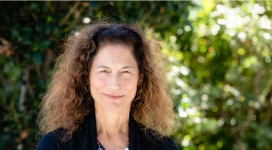SAUDI ARABIA – The Gospel penetrates through the rigid boundaries of the Saudi Arabian Kingdom, as marginal Filipino workers lead house fellowships and churches.
The Saudi Arabian government works extensively to keep the Bible from crossing through its borders. Its unbending governmental regulations are designed to keep its Muslim population “untainted” by Christian influences. Customs officers comb suitcases, confiscating everything from crosses to Christmas cards. Online, more than 2,000 Internet sites are blocked by Saudi authorities for their religious content, and “Jesus” is a featured word in the country’s surveillance system that monitors all telephone and e-mail messages.
Nonetheless, despite of such regulations, many Muslims open their hearts to plant the seed of the Word. Foreign workers to the Kingdom report encountering Muslims who wish to learn more about Jesus after dreaming about him.
Among them is a zealous Muslim who had never touched a bible in his youth because of his opposition to Christianity. One day however, he prayed to Jesus for help in time of desperation, and felt the miracle of God answering his situation within days. He recalled wanting to read the bible after Jesus appeared in his dream the second time. "After one year of reading the Bible in an honest way, I found my way to the Lord Jesus Christ, and I found out how very much God loves me," He said.
Though 1 million of the country’s 7 million foreign workers are Christians, they are prohibited from holding a public worship gathering. Private worships are legal to some degree; Private worship is supposed to be permitted, but the religious police officer offers five years’ salary as bounty to anyone who exposes a house church. In light of these restrictions and dangers, many Filipinos who enter the kingdom as nominal Catholics, lead house fellowships and become vibrant witnesses for Christ.
At a meeting of 120 Filipinos who were leading house fellowships in Saudi Arabia - with a total membership of 10,000 -- only three acknowledged that they had known Christ personally before entering the country. "[They] just had the Scriptures, that's all," said the Western observer. "The first time they read through the book of Acts, they just assumed the same things would happen to them - they would be beaten, people might suffer and die, but there would be miracles, and it would be infectious."
By Paulina C.
-

Pastor John Piper Offers Insight and Encouragement for First-Time Bible Readers in 2025
As the new year begins, many Christians have resolved to take on the project of reading the Bible cover to cover. That's great and all, but if it's your first time, just where do you start?
-
[Exclusive Interview] A revelation within the brink of life and death — Meg Leung’s mission in Christian art
Meg Leung (梁麗橋), an artist with a lifelong love for watercolor painting, sees her art as more than a means of expressing her inner world; it is a bridge connecting her to God. Her artistic journey has revealed God’s perfect plan and inspired her to communicate the power of faith through her wor
-
Former President Jimmy Carter Honored with State Funeral, Grandchildren Reflect on Sunday School Legacy
Former U.S. President Jimmy Carter, remembered not only for his leadership but also for his lifelong dedication to teaching Sunday school, was laid to rest on January 9 in a solemn state funeral filled with scripture and heartfelt tributes.
-
Korean cult leader who raped victims ‘in the name of God’ sentenced to 17 years in prison
Jung Myung-seok (정명석), leader of the Korean religious cult Jesus Morning Star (JMS), also known as Christian Gospel Mission (CGM), has been sentenced to 17 years in prison by South Korea’s Supreme Court.
-
5 times fire was used in the Bible as judgment: Reflecting on the LA wildfires
The recent wildfire in Los Angeles has prompted Pastor David Zhai (翟大衞) to reflect deeply on five significant instances of fire in the Bible. Pastor Zhai, a frequent speaker and preacher at churches in the Vancouver area, often interprets current events and news from a biblical and faith-based perspective.




![Saving Gen Z’s Faith: Steve Richardson’s Bold Call to a New Generation of Missionaries [Exclusive Interview]](https://www.gospelherald.com/media/cache/thumbnail/7/21/72196sp_273w_150h_1x_1y.jpg)

